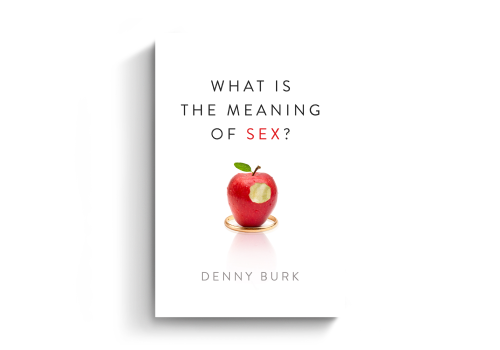Book Review: What is the Meaning of Sex?
This weekend I decided to read a book which was recommended by Al Mohler and Russell Moore entitled, What is the Meaning of Sex, by Denny Burk, published by Crossway. I picked it up from the local library not really knowing much about Denny Burk.

Denny Burk is a PhD graduate of Southern Baptist Theological Seminary, and currently is a professor at Boyce College (the undergraduate program of SBTS). He is an associate pastor in Louisville, KY, and edits The Journal for Biblical Manhood & Womanhood. He also blogs at dennyburk.com.
Burk divides the book into eight main sections, bordered by an introduction and conclusion. The outline of the chapters are as follows:
- Glorify God with Your Body
- Glorify God with Your Hermeneutic
- Glorify God with Your Marriage
- Glorify God with Your Conjugal Union
- Glorify God with Your Family Planning
- Glorify God with Your Gender
- Glorify God with Your Sexuality
- Glorify God with Your Singleness
When opening the book for the first time I was unsure whether or not I would read the whole thing or just skim some of the more interesting parts. However, while reading the introduction I was immediately hooked.
Burk opens with an illustration from his own life of a pastor asking him about how to minister to a family which has a child who wants a sex change. Although the answer may seem straightforward at first, this child had a condition known as intersex, a condition in which the child’s genitalia are not fully developed at birth. Thus it is initially unclear whether it is a boy or a girl. In this particular instance, the girl claimed her parents and doctor made the wrong choice, and that she really should have been raised a boy instead of a girl. Burk wonders if many Christians know enough about sexuality and gender to be able to help this family.
This situation sets the stage for the discussion on sex and gender. Beginning with chapter one, Burk launches into a biblical-theological examination of sex. This opening chapter sets the foundation with an exegesis of 1 Cor 6:12-18, establishing that sex exists for the glory of God supremely. Hence, all of the issues which deal with sex and sexuality must be addressed within that framework.
Chapter two discusses how Paul and Jesus combine to give an overall authoritative witness about sex. Burk spends some time in chapter two countering the common cultural notion that Paul and Jesus had different views about sex and sexuality.
Chapter three deals with the definition of marriage being a procreative, heterosexual, monogamous, nonincestuous, sexual union. Within this chapter Burk also takes the time to address the covenantal nature of marriage, the issue of polygamy in the Old Testament, as well as the issue of incest. His arguments are biblical and well-reasoned, providing a biblical foundation for how to view marriage.
Chapter four deals with what is acceptable sexually within the bounds of marriage, and the issue of divorce and remarriage. Burk warns against being too hasty to think anything is appropriate sexually within the bounds of marriage. Pertaining to divorce and remarriage he argues well that Christians are never to divorce (the only exceptions being sexual unfaithfulness and the abandonment by an unbeliever).
Burk is refreshingly current in chapter five on the issue of family planning and talks in detail about the issues involved with current family planning methods available, notably the Pill and other methods of birth control.
In chapter six, Burk directly addresses the issue he raised in the introduction about intersex. He writes about what it means to be male or female, and gives practical advice for how parents can work through difficult situations like intersex.
Chapter seven addresses the current cultural craze–the acceptance of homosexuality as a valid sexuality. Burk argues with precision and accuracy that homosexuality is forbidden in both the Old and New Testaments, and is rebellion against the order instilled in God’s creation. Although Burk effectively proves his point from Scripture, he is quick to remind Christians that homosexuals are real people who need to be loved and shown that they are wrong with patience and care. Homosexuality is not a sin which should cause Christians to disassociate from an individual.
In his last chapter, Burk addresses singleness and the complications that arise with reference to sexuality. Here Burk addresses the ubiquitous problem of pornography and how Christians should think in reference to it.
In conclusion, Burk has written an edifying book on how Christians should think biblically pertaining to sex and gender. His book is endorsed by men like Al Mohler, Tom Schreiner, James Hamilton, and Wayne Grudem; so, he does not need my small recommendation. Regardless, I do think that as our culture continues to confuse itself on the issue of gender and sexuality, this will be an excellent resource for the Christian. We need help thinking biblically, and this resource provides the Christian with a biblical foundation for thinking about God’s creative design for men and women.